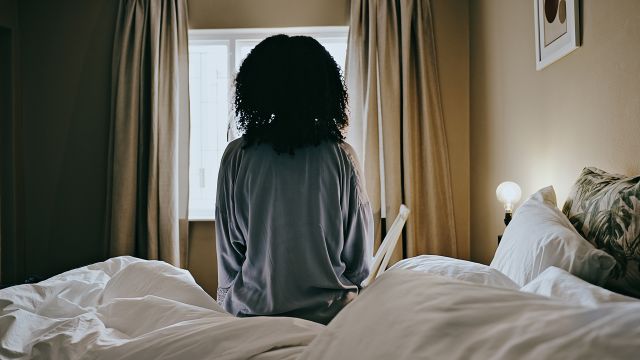Bipolar disorder refers to a group of mental health conditions characterized by episodes of extreme changes in mood, including manic episodes, depressive episodes, and mixed episodes. There is no cure for bipolar disorder, but the condition can be managed, typically with a combination of medications and psychotherapy.
Another important aspect of managing bipolar disorder is avoiding triggers—anything that can act as a catalyst for an episode.
What can trigger a bipolar episode?
Bipolar disorder is a different experience for every person. The condition can be grouped into different subtypes depending on the types of episodes a person experiences. The symptoms, duration, and severity will also vary from one person to the next. Similarly, different people will find that different things trigger episodes.
However, there are some triggers that are recognized as common, that anyone with bipolar disorder should recognize and pay attention to. These include:
- Stressful life events. Stressful life events can trigger episodes. It’s important to recognize that it’s not only negative events that can trigger an episode. Losing a job or the death of a loved one can be a trigger, so can the stress of moving into a new home or planning a wedding.
- Substance use. People with bipolar disorder are at an increased risk of substance use disorders, but even recreational substance use, including alcohol, can interfere with management and trigger episodes.
- Too little sleep. Changes in sleep patterns can be a warning sign of a bipolar episode. Sleep deprivation or sleep loss may also be a trigger for some people. Insomnia and other sleep problems in general are common among people with bipolar disorder.
- Medications. A wide variety of medications can affect mood and behavior and may trigger episodes. Always consult your healthcare provider before starting any medication and tell your healthcare provider about all medications you take, including any over-the-counter medications and supplements.
- Seasonal changes. Seasonal affective disorder is considered a subtype of bipolar disorder (as well as major depression). With seasonal affective disorder, the transition between the seasons can trigger episodes.
- Childbirth. Childbirth has been associated with episodes of postpartum depression as well as postpartum mania (which falls under the umbrella term postpartum psychosis). For some, the onset of bipolar disorder begins during pregnancy or after giving birth.
Preventing bipolar episodes
Following a treatment plan exactly as prescribed is the most important step a person can take to successfully manage bipolar disorder and prevent episodes.
Treatment for bipolar disorder will be overseen by a psychiatrist, a medical doctor who specializes in the treatment of mental health conditions, who can prescribe medications and monitor a person’s response to those medications. But a person with bipolar disorder may also work with other therapists and providers depending on their symptoms, treatment goals, and the type of psychotherapy that works best for them.
Some strategies that can help a person avoid triggers and manage bipolar disorder:
- Follow consistent routines, including routines around sleep
- Eat a nutritious and balanced diet
- Get regular exercise
- Take steps to minimize and reduce stress
- Avoid alcohol and other substances
- Build a support network of friends who can help you when you need help
- Connect with other people who have bipolar disorder through support groups
- See your primary care provider and keep up with other routine and preventive healthcare
- Keep a journal to track how you feel each day
Your healthcare providers may have other strategies and ideas that can help. Because bipolar disorder is a different experience for everyone, your healthcare providers will be your best source of information.






